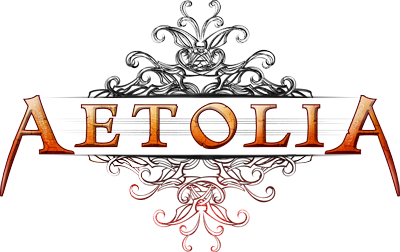16.3.4 Origin of the Horkval
Perhaps she knew not what he did. Perhaps she sought to understand what
death was. Whatever the case, the day she decided to sever the head of
her lover as he lay dormant by the pool was a day the world changed
suddenly.
It was the time of the great unknowing, when men and women had no
purpose, but strode across the land, relying only on momentary instinct
and without the possibility of forethought, and intent. It was a time
before the appearance of Varian as the Celestine, and a time nearly lost
in history. It was the time of the great unknowing.
Her lover slept, dozed off after a jerking, nearly violent act of love.
And she glanced upon him, with neither love, nor hate, for neither
existed in the world yet. But she stared at the nape of his neck, and
wondered why the flesh was soft of that like a beast, and why such a
vulnerable part was left so bare, with little bone or sinew to stop a
crippling blow. Was it not here that we end the beast's existence so
that we might cook it and feast upon it? Why were some meats good to
eat, and others bitter, or tough, leaving one retching for days on end,
and thirsty for drink. She looked at his limbs, strong with the days'
activities, and looked down upon her own limbs, stronger yet with her
own activities. He rested, yet she was awake, alive, invigourated after
their passion.
And, not truly understanding what she did, she took a sharp stone from
aside the pool near which they rested, and with one glancing blow struck
him in the head near the fore part of the crown. His eyes opened in an
instant, not comprehending what was happening. With a second blow, his
eyes glazed from the impact, leaving him helpless, and without sense.
She looked down again at his peaceful and weak frame. His chest rose
rhythmically and quietly, mimicing the movements of the ripples on the
pond. His vulnerable form no more powerful that a weak suckling babe.
She was stronger, and if she were to carry on her seed, he would only be
an inconvenience and a strain on her resources for her children. Let him
rest, in eternal slumber, for he would be a strain no longer.
And with the sharp edge of the stone she began to sever his throat. A
low wailing scream leap out from his throat, with blood like a geyser
darkening his unclothed form. Within a few moments, she was down to the
bone of his neck, her hands covered in warm, life-giving blood. The rock
not sharp enough, she tossed it aside, licking the blood from her hands.
Realizing the nutrients coursing through his last blood, she began to
drink from the wound itself, feeding herself, and her growing child.
Satisfied for the moment, she raised her head, and looked around at the
silent woods surrounding her. The air was too warm and humid tonight,
and the woods too quiet. She would find no game this evening.
Standing above the unmoving corpse before her, she began to move slowly
about it, touching parts of it to test its firmness. At last satisfied,
she picked up the bloody rock, and began to cut skin and meat away from
the bone; once having gutted the body, she prepared a fire to dry the
meat so that it may keep to provide for her and her offspring. Pleased
with the results of her hunt, she sat down by the pool, wearied from the
activity.
Varian, the Satus, viewing His creation with some interest, spoke to
her, intoning, "Like the Mantis, who eats her mate, so shall you and
your offspring be."
Immediately a wail of pain exploded from her mouth, as her skin became
more rigid, and her limbs more thin and plate like. Her head became more
rounded, and her eyes wider and bejewelled as the sea's surface.
Covering her face with her bloodied hands, she attempted to hide herself
from the world, but only succeeded in smearing her eyes in the crimson
blood of her mate.
And thus it is that our people came to inhabit Aetolia, with their
strong bodies, and their eyes of red. In the spring, when the woods are
quiet, and the air humid, one can hear the cries of the men giving up
their lives so their mates may feed the young.

